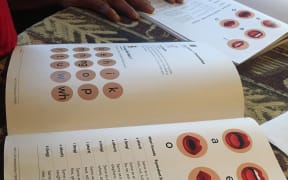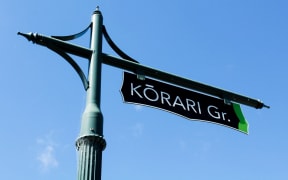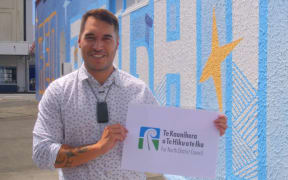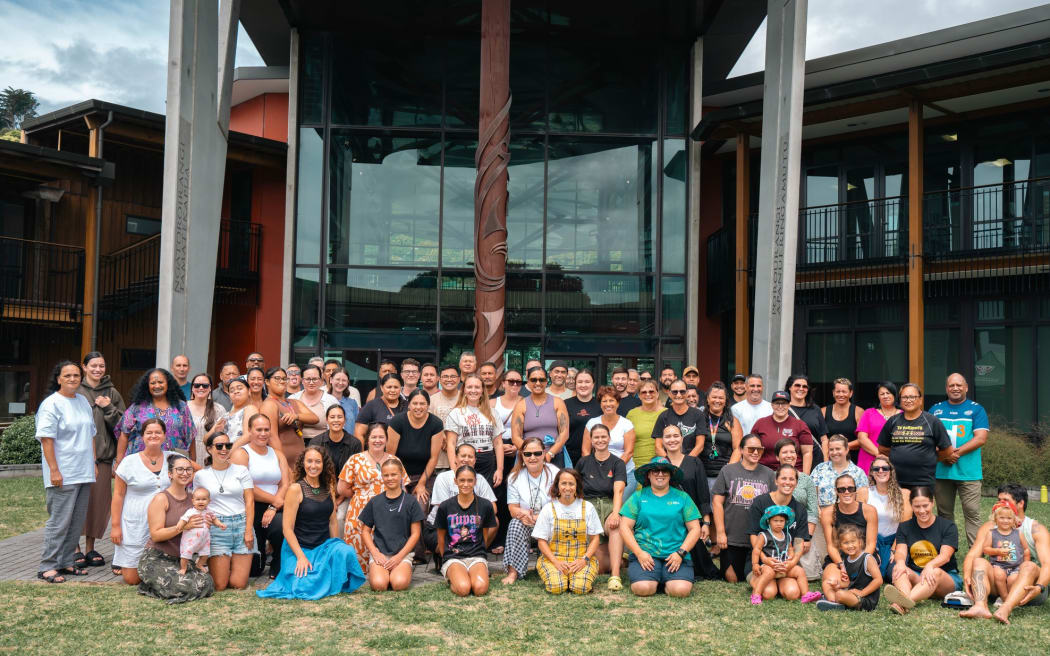
Attendees of Te Kura Reo ki Ngāti Awa in Whakatāne. Photo: Aorewa Creative
Thousands of learners are attending the courses every year, and there are long waiting lists for those who miss out.
But there are concerns over how the growing demand can be met as the government cuts back on budgets and focuses less on te reo.
Paulette Tamati-Eliffe attended her first Kura Reo 21 years ago, where she started a lifetime journey for her and her whānau.
At the time she didn't feel she was good enough or fluent enough to be in a full te reo enviroment, but that soon changed.
"By the end of that first kura reo, I remember it I was dreaming in te reo māori. It was in Christchurch and I went up the street to get a break and buy a real coffee and I remember going into the shop and speaking Māori to the girl and not realising it."
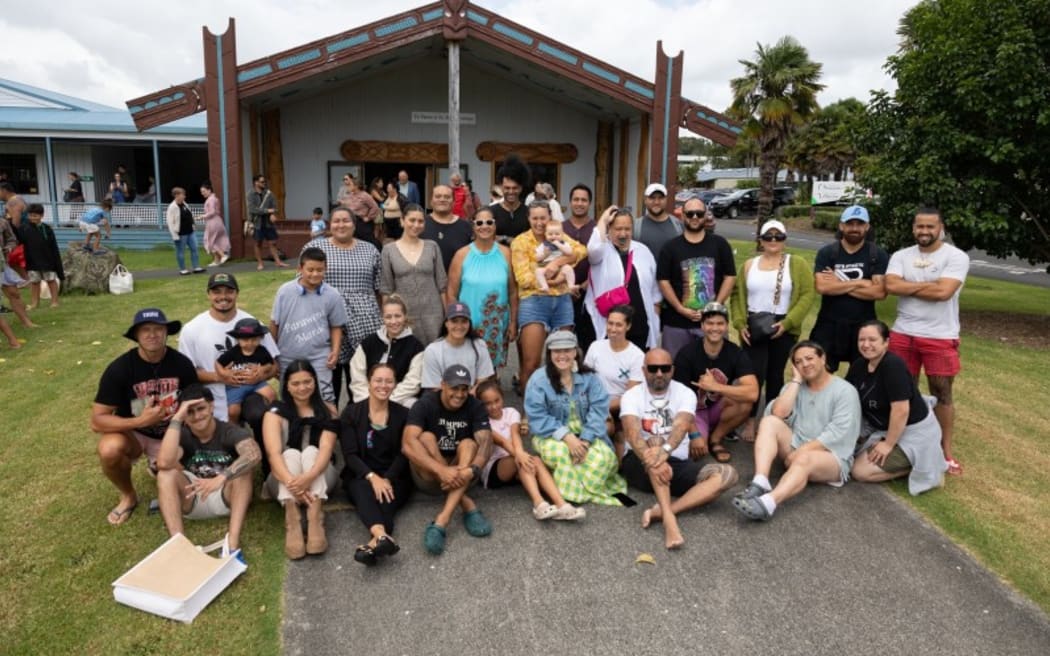
Te Taumata 2023 Kura Reo at Te Puna o te Mātauranga, in Whangārei. Photo: Rawhitiroa Photography
Tamati-Eliffe said going through a full immersion enviroment inspired her whānau to make a life changing switch, and raise their children in te reo.
She has since graduated from student to teacher and said Kura Reo was one of the best ways to learn te reo.
"[There are] a lot of opportunities to learn te reo at various levels, but to be in an immersion enviroment for five days, I mean imagine if it was a month or a year it would be incredible, but [five days] is the best we can offer peoples busy time schedules.
"Five days really is one of the most effective ways to acquire a language and increase your proficiency."
The first Kura Reo was set up in Waimarama in 1989 by then-Māori Language Commisioner Sir Tīmoti Kāretu.
Once just a bastion of hardcore language nerds with only four Kura Reo per year, the last year saw a record high of 61 Kura Reo, including the first held outside of Aotearoa in Perth.
Aimed mainly at intermediate and advanced te reo speakers, many Kura Reo are funded through Te Mātāwai, an independent entity working with the Crown to coordinate the revitalisation of te reo.
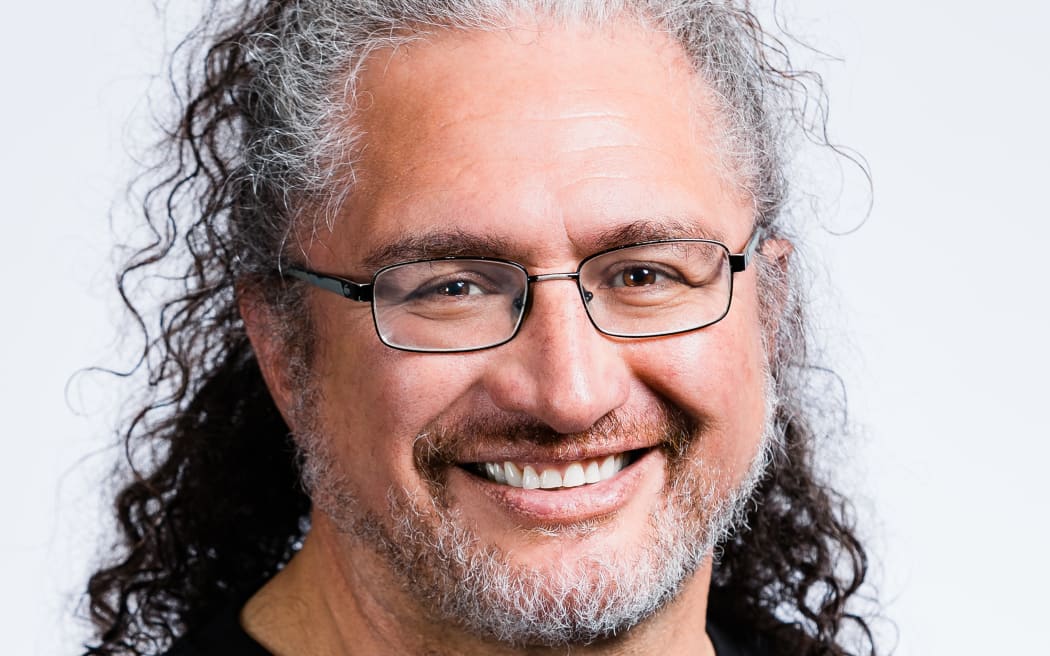
Te Mātāwai Tumu Whakarae (CE) Poia Rewi. Photo: Erica Sinclair
Te Mātāwai tumu whakarae (Chief Executive) Poia Rewi said key drivers behind the success of Kura Reo have been their spread into the regions and the commitment of the teachers and students who attend.
"The key to it is like minded people passionate about improving their proficiency, improving their range, that are attending under their own auspices so it's really driven only by the person's pure desire to be better," he said.
Rewi said kura reo are the second biggest area of investement from Te Mātāwai's 10 million budget, superseeded only by wānanga. But he said Te Mātāwai's funding is not enough to fund all the Kura Reo who apply.
"We always have to send out some dissapointing letters to applicants every year, and it will be the same this year. We are declining 75 percent of applications due to insufficient funding that we have."
And as the coalition government looks to cutback on spending, it will likely get tougher to find funding.
Rewi said it has taken 35 years to grow the movement and it would be a shame to see that drop off, but he has confidence that Māori will not allow that to happen
Many Kura Reo might look to other avenues for resourcing, and Paulette Tamati-Eliffe said iwi, including her own Ngāi Tahu, have started to set up their own intiatives.
But even so demand outstrips the resources available.
Still Tamati-Eliffe said the popularity of Kura Reo is a sign that te reo is on the rise.
